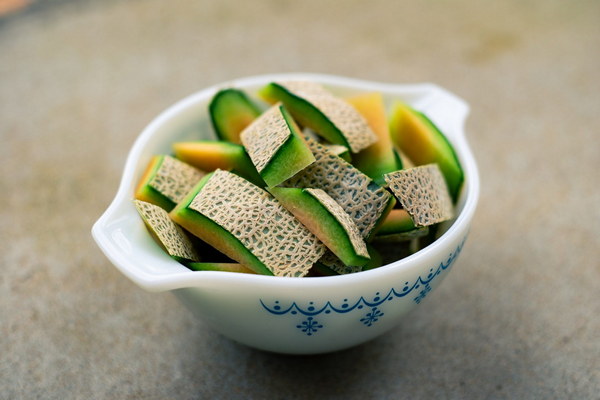Does Rice Nourish the Kidneys Exploring the Traditional Wisdom and Modern Insights
In the realm of traditional Chinese medicine, rice has long been revered for its ability to nourish the kidneys. But does rice, a staple in many diets worldwide, truly have kidney-boosting properties? This article delves into the traditional wisdom and modern insights to determine whether rice is a kidney-friendly food.
Traditional Chinese Medicine Perspective
According to TCM, the kidneys are the root of life, playing a crucial role in energy, fertility, and overall health. TCM practitioners often advise patients to consume foods that can help maintain kidney health. Rice, with its sweet, neutral taste, is believed to be particularly beneficial for the kidneys.
In TCM, the kidneys are associated with the water element and are responsible for storing essence (jīng). This essence is considered the vital substance that sustains life. As such, foods that are sweet and nourishing are believed to replenish kidney essence and promote longevity.
Rice is often recommended in TCM for its ability to:
1. Strengthen kidney function: Rice is said to tonify the kidneys, helping to improve their ability to filter waste products from the blood and maintain fluid balance in the body.
2. Enhance vitality: By replenishing kidney essence, rice is believed to boost overall energy levels and vitality.
3. Support fertility: TCM associates kidney health with fertility, suggesting that rice may help improve reproductive health.
Modern Nutrition Insights
While the scientific community has yet to fully validate the kidney-boosting properties of rice from a TCM perspective, modern nutrition research offers some insights into the benefits of rice consumption.
1. Complex carbohydrates: Rice is a rich source of complex carbohydrates, which provide a steady supply of energy without causing spikes in blood sugar levels. This can be beneficial for maintaining overall health, including kidney function.
2. B vitamins: Rice is a good source of several B vitamins, including niacin, vitamin B6, and vitamin B1. These vitamins play a crucial role in energy metabolism and can help support overall health, including kidney function.
3. Trace minerals: Rice contains small amounts of trace minerals such as magnesium, phosphorus, and potassium. These minerals are essential for various bodily functions, including kidney function.
However, it is important to note that while rice may offer some health benefits, it is not a cure-all for kidney-related issues. In cases of kidney disease or dysfunction, it is crucial to consult with a healthcare professional to determine the best dietary approach.
Potential Risks of Rice Consumption
While rice can be a healthy part of a balanced diet, it is important to be aware of potential risks associated with its consumption:
1. High in calories: Rice is a calorie-dense food, which can contribute to weight gain if consumed in excess.
2. Glycemic index: Some types of rice, such as white rice, have a high glycemic index, which can cause rapid spikes in blood sugar levels. For individuals with diabetes or those at risk for developing the condition, it is essential to choose lower glycemic index options, such as brown rice.

3. Arsenic contamination: Some studies have raised concerns about arsenic contamination in rice, particularly in certain regions. While the levels of arsenic in rice are generally considered safe, it is still important to consume rice in moderation and vary your diet to minimize potential risks.
In conclusion, while rice has been traditionally regarded as a kidney-friendly food, its benefits are not fully understood from a modern scientific perspective. While rice can be a nutritious part of a balanced diet, it is essential to consume it in moderation and be aware of potential risks. As always, consulting with a healthcare professional is crucial for individuals with specific health concerns or conditions.









